
The Senegalese Revolution.. Where to? .. By Mohamed Galai Ngaye, Director of the Al-Mihrab Institute in Brussels, Senegalese writer and thinker

- Europe and Arabs
- Thursday , 2 January 2025 13:42 PM GMT
A panoramic reading of the political situation in Senegal, after nearly nine months since the fall of the former regime and the arrival of the Pastef party to power, and after exiting the legislative elections that were considered by many political analysts and pollsters to be the final criterion for finally getting rid of what is known to all Senegalese as the "system", requires from our own perspective to pause for a moment with the recent past, that is, the period between 2021 and 2024 AD, to analyze it and decipher some of its codes in order to realize the value of what actually happened in this country, Senegal.
Is what happened a real revolution or just a normal transitional period of rule or something else? After reviewing the reality of what happened, we will move on to address another important point in our view, which is a forward-looking reading of the near and distant future together, through analysis, exploration and survey.
To answer this main and important question, we would like to emphasize first and foremost: that the Senegalese people lived during that difficult period a great historical event that was unprecedented throughout their modern political history. Secondly: What happened was nothing but a moment of enlightenment, not because a regime was overthrown or a president was removed, but because the Senegalese youth took control and entered history through its widest doors, after a long, programmed absence from previous governments. The value of what happened is the emergence of the entire youth class - not the entire people - to take responsibility and seize from the regime what it possesses, which is political legitimacy. The youth came out to take control of their affairs themselves, face their fate and decide their future. They took to the streets in crowds, often spontaneously, to protest against corruption, injustice, poverty and unemployment. This was the first stage of the battle, meaning the stage of the real revolution that provided the opportunity for Pastef's party to come to power. Let us note that every revolution has its own type, facts, character and path, and there is no dispute over terminology. As for the current stage of life, the youth represented by the "Djomai-Sonko duality" have begun to establish a new era by making a break with the usual system, the "inherited system", which has proven to be incapable and abysmal in all aspects. The main concern of this new system lies in pushing the country towards the horizons of progress and economic prosperity. Perhaps it is also useful to note that the broad base of the people - and we mean by this in particular this youth bloc - is for the first time throughout modern Senegalese history that we find them more aware and understanding of their promising and expected future, and more politically mature than the political elite of the system that was overthrown with all its spectrums and gangs, because this elite of politicians continued to believe that they still control the imagination of the people and that they have in their hands all the factors, elements and tricks to continue living at the expense of the people, and to continue sucking their blood, as they have been accustomed to doing in the past, that is, since Senegal gained its alleged independence in 1960 AD. Based on what we have mentioned, we can say - with some reservations - that the star of the generation of the inherited system has set and will never return, and that a new formation of the Senegalese political mind has already begun to take shape on the political map with the victory of the Pastef Party and its arrival to power. The generation that protected Pastef and brought him to power is undoubtedly a generation aware of its renaissance future, and also aware of the precious minerals and wealth that its land contains that are capable of playing a positive role in their future and transforming their country from its miserable and deplorable state to a much better state that would be comparable to some Gulf countries in terms of economic progress and the well-being of its population in terms of income and job opportunities, etc. What is striking here is that this generation, nearly a decade ago, realized with leader Ousmane Sonko, head of the Pastef Party, the opportunity of a lifetime that is impossible to miss, and must certainly be seized no matter the cost. What is noticeable today through the media, especially on social media, is not only the determination and resolve of this generation to break with the inherited political system and its people, but also its vigilance in order to preserve the project of change that it suffered and voted to achieve. Therefore, you find it openly criticizing some of the government’s positions and decisions without shame. It is an alert and aware generation that knows how to interact with the Senegalese political reality and its manifestations in a rational and enlightened manner. All of this indicates the beginning of the emergence of indicators of a new Senegalese spring, and its features have already begun to appear on the horizon, and we hope with all our hearts that it will be a spring that is more aware in the minds of its bearers than the spring that was known in some Arab countries in the past decade. Indeed, Senegal, at the present time, is going through an exceptional historical-political turning point. In other words, Senegal is facing a new paradigm (ideological model), that is, a generation of a different, more mature type, a generation that has realized its historical responsibility, a generation capable of taking risks for its future, and even sacrificing its soul for development, renaissance, and joining the ranks of modernity. It is worth noting that Leader Sonko is a seasoned politician who is second to none, and has been able to awaken the Senegalese people from their deep slumber and enlighten them about their near future, that is, what awaits them in terms of prosperity, comfortable living, and development in every sense of the word! In fact, the dream that Leader Sonko sold to the Senegalese people, especially the youth - and I hope it will be realized on the ground - constitutes the founding focus of this new paradigm. I have no doubt that the exceptional context that the Senegalese people are going through at these historical moments makes it difficult for me, as an intellectual living abroad, to digest all its indicators and the questions, implications, outcomes, and even hopes it contains. So, from my perspective, it takes some time to absorb this new paradigm. In my book Ousmane Sonko, Symbol of Struggle and Liberation, I proposed the creation of a scientific workshop to study what happened and is happening now in Senegal. After Senegal's disavowal of a dark political period Its day was darker than its night, and after the success of the revolution led by Mr. Ousmane Sonko and the Pastef Party, which gave the Senegalese the opportunity to return and organize themselves on the right path, the democratic path, and after stability began to creep into reality and gradually take up a large part of the political arena, after all this recent uproar about the new government and its seriousness and efficiency in managing and administering the state and establishing it to safety. After all that, we see the need to anticipate events, and by that we mean changing the course of the political dialogue to open the door wide to the beginning of a new period that paves the way for the entry of the great, enlightened thinking minds that Senegal possesses inside and outside it into a constructive and fruitful dialectical dialogue about Vision 2050. From our own perspective, the dialogue from now on must revolve around real, serious and fateful questions, such as: To what extent is this vision possible to achieve? How realistic and serious is it in changing the face and direction of Senegal? What are the urgent and non-urgent priorities in domestic and foreign policy? What is the leading diplomatic role from a cultural perspective in the civilizational dialogue between the North and the South that Senegal should play with the political rupture that was raised by the Pastef Party that took power? Senegal, by virtue of its geographical, strategic and historical location, has the ability and qualifications with its intellectual and cultural stature to manage this dialogue. It is a country adjacent to America across the Atlantic Ocean, and close to Western Europe in terms of its influence in applying and implementing the successful democratic model in the African continent, and also close to the East in religious communication and common Islamic values. We do not mean here political dialogue, but rather we are talking about civilizational dialogue between the North and the South, because there is a real disagreement that has been raised between these two blocs on issues of social liberation such as family issues and some values that the countries of the South reject and the countries of the North want to impose on them. From this standpoint, we realize that this internal dialogue that we seek in this article will allow the current government to review some of its political and strategic options and convictions and reconsider some of its priorities, without going down a dead end, which is the path of risk and adventure. There is no doubt that there are some sensitive topics that must definitely be avoided at this dialogue stage, such as the issues of the situation in Casamance and the militias stationed in its heartland and suburbs, and all the security problems that, if raised, could threaten the entity of the state or create fragmentation and disintegration on the sociological level. The main dilemma of the ruling regime lies in the general issues, not the details. What we want to achieve is the dominance of the idea of overcoming rather than dwelling on trivialities and the mentality of the sterile opposition. Advanced peoples are distinguished by their ability to overcome whenever necessary, so the government must determine its priorities and work on approaching them with a clear methodology and strive to achieve them. We hope from now on that the dialogue will focus on these hotbeds, issues and questions, otherwise we fear that we will lose our way and it will then be difficult to go back. If the educated elite does not receive and begin this short term – which will pass before our eyes like clouds (only five years) – by establishing and framing the 2050 vision, Senegal may lose a lot and this revolution, which, as we know, has left behind pain, blood and sacrifices, will be aborted. Worse still, the revolution will face, and even fight, dark forces, by which we mean the “deep state” (l’Etat profond), whose apparatuses have been activated, whose foundations have been laid and whose spiders have spread since Bastif came to power. And who knows that its main concern lies in destabilizing the foundations of the state and trying to drag it into a spiral of internal conflicts with dire consequences, all to prevent the government and distract it from focusing on the 2050 vision, thus making it fail to achieve all the hopes placed on its shoulders. Accordingly, we realize that Senegal is going through a historical turning point in which the pace of events is clashing between the current of modernization and the current of the inherited system that is breathing its last breaths. Let the coming period be a period of calm dialogue to establish and frame - as we have hinted - the future of Senegal politically, economically and culturally. It is a great opportunity granted by heaven to the people of this country to take the reins of their own affairs. In all countries that have gone through such revolutions, the "deep state" has been activated to obstruct them and prevent their success, and Egypt and many other countries are not far from us. The Senegalese people in this difficult period face three major challenges: The first challenge: lies in pursuing and punishing the criminals of the former regime regarding the painful events that took place between 2021 and 2024, which recorded more than 80 deaths and many injured and maimed. The second challenge: lies in recovering the state's money to its coffers from the hands of those traitors who committed financial corruption and who embezzled its money and ganged up on stealing large sectors of land and divided them among themselves in an unfair division on the backs of the people. These two challenges must be faced with enlightened rationality and in the spirit of applying social justice only, and nothing else, not with a spirit of revenge or using it as a political card against the opposition, because it may reflect negatively on the ruling regime. It is a serious and sensitive issue that affects a large segment of society known for its cohesion with its ethnicities and regions.
The third challenge, related to Vision 2050: There is no doubt that it will prevent the "Djomai-Sonko duality" from failing to create the economic boom hoped for and expected by the people by creating job opportunities for young people and establishing infrastructure at all levels, especially by giving Senegal a different, modern and bright facade that will be a model to be emulated in the African continent. This facade that is expected to be achieved is the one that achieves economic development and living democracy and guarantees freedom of expression as well as equality before the law for all citizens, not the one that uses double standards as was the case during the era of dictator Macky Sall.
Indeed, in our current situation, the Senegalese are waiting for this new government to make a real break with previous eras, otherwise they will stand in its way. ...and they will not be gentle with it, let alone be polite with it. This is because the revolution left behind blood, corpses, the disabled, and those suffering from serious mental illnesses, etc. They will not allow all of that to go down the drain or in vain. The ruling party must realize that there is something called political time (le temps de la politique) and party tactical strategies, and another time for work (le temps du travail). It seems clear to us that the time for work, seriousness, and self-assertion has rung its bell and its time has come. In this context, we must focus from now on on the 2050 vision and race against time to achieve a large part of it before the end of this first term. Otherwise, surprises may emerge on the political scene, because the current living conditions, we mean after two or three years, will allow for the emergence of new political figures on the scene, which may cloud the atmosphere and disturb its serenity, and of course this will not be in the interest of the ruling Bastif party. From this standpoint, we realize that there is no escape from the emergence of a new structure for the political map, because everything new carries within it what opposes it, and it is no secret that many analysts believe that the opposition that will be born and confront Bastif will emerge from his embrace, and that is the phase of life and its current law, so Bastif's party should take that into account. And there is more to the article. Mohamed Galai Njaye, Director of the Al-Mihrab Institute in Brussels, Senegalese writer and thinker and author of the famous book "Ousmane Sonko, Symbol of Liberation and Struggle".




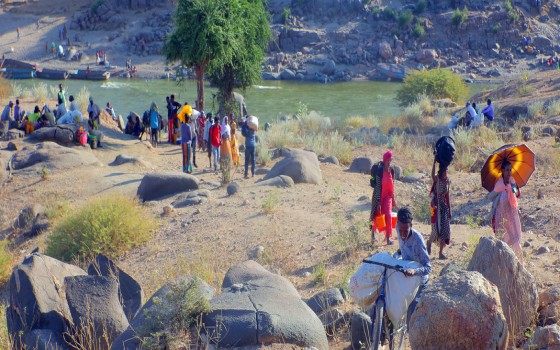

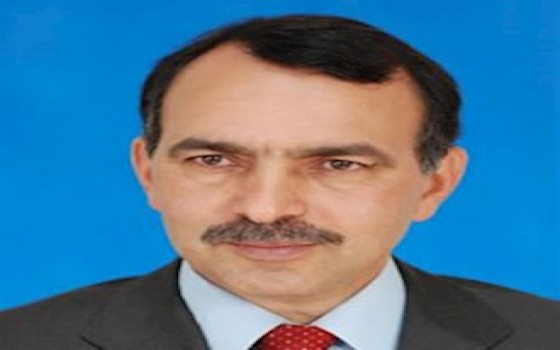
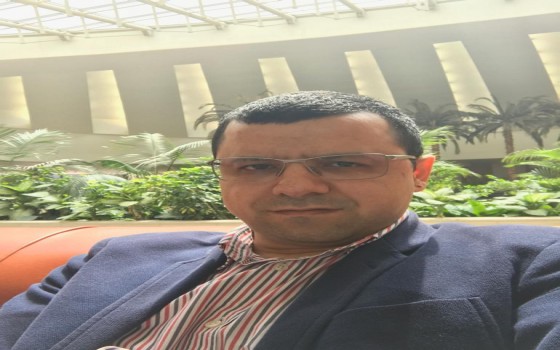
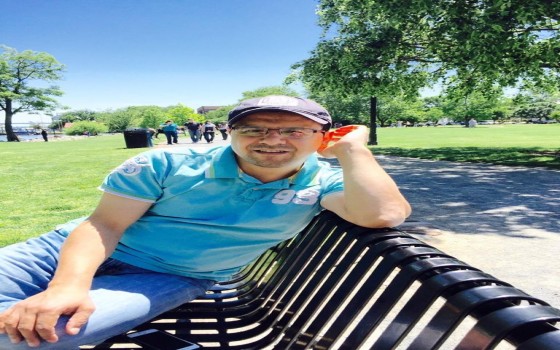
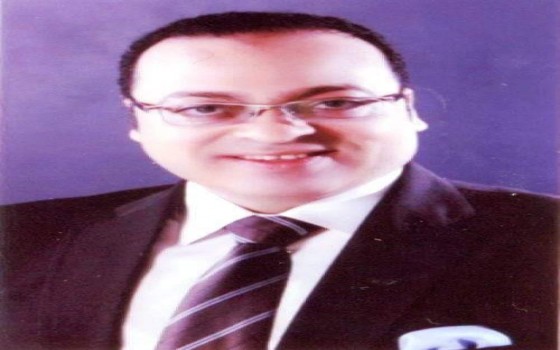
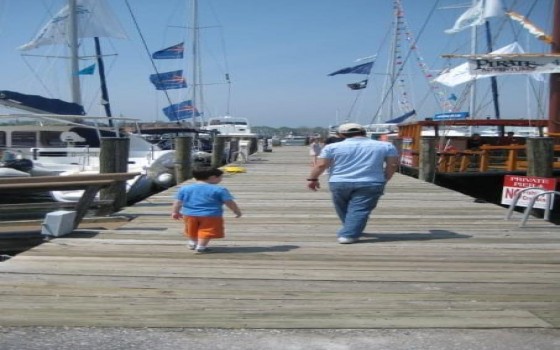
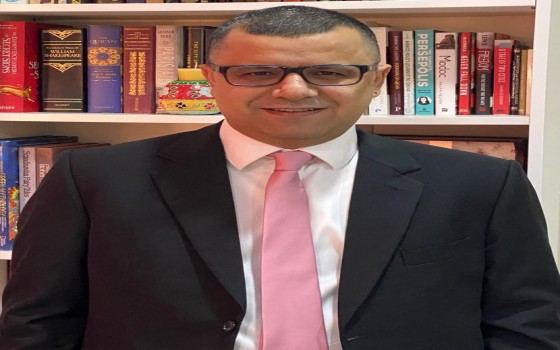
No Comments Found